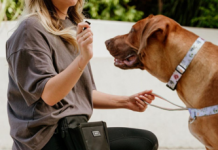Dogs and cats crave companionship from their owner, and when they have to go without, sometimes things get ugly. Defecating or urinating in the house, chewing furniture and becoming aggressive are all major issues that people face when their pets develop separation anxiety. Not all experience separation anxiety, though, so it’s important to consider the causes before you try to correct this issue in your dog or cat.
Abandonment or Change of Family
It’s rare for a puppy who’s been with one family from day one to develop a separation anxiety disorder; rather, most occurrences happen with dogs who’ve been adopted from a shelter or who have changed owners in their lives. Most of these dogs have been voluntarily turned in, their companions (owners) leaving them alone. Once they realize that their owner isn’t coming back, this triggers the development of separation anxiety. Even if that same dog is taken in by a loving family, each time they leave for a short period of time, he fears they won’t return.
Change in Routine
Dogs and cats are creatures of routine, and they come to depend on the consistent time they spend with their owners. What happens when the owner gets a new job and is gone for a longer period during the day? This may prompt an unwelcome response in the dog, as the change is an unwelcome change for him. Similarly, if there’s a new pet or new child in the family that takes some attention off the dog, he may miss the interaction that he grew fond of, and let you know about it by acting out in an unpleasant way.
Change in Residence
Cats especially become quite fond of their surroundings. They attach to their environment just as much, if not more, than they do people. Because of this, sometimes a change in environment can be enough to cause a cat to develop separation anxiety.
Change in Household Members
If Rover is the family dog and the eldest child in the family goes off to college, coming home once every few months, Rover will probably develop separation anxiety. Anytime the family member situation changes, there’s an adjustment period for pets; they miss the member just as much as the human family members! Sometimes pets don’t bounce back quite as easily, and separation anxiety becomes a problem.
If you notice your dog or cat experiencing any symptoms of separation anxiety, examine the situation and take note if anything major has changed. Do your best to pin point the source of his anxiety, and then talk to your vet about how best to treat it from there.












